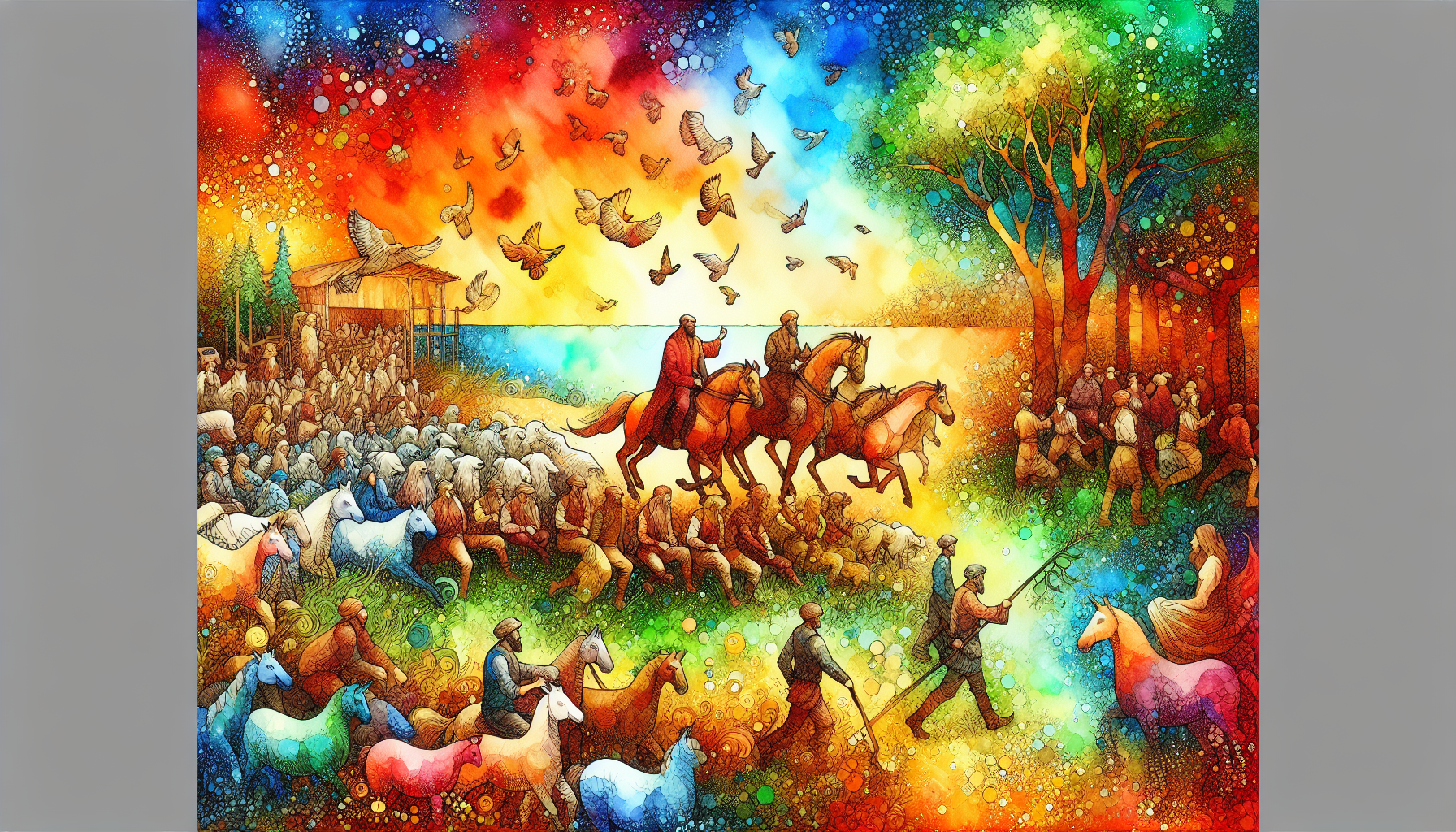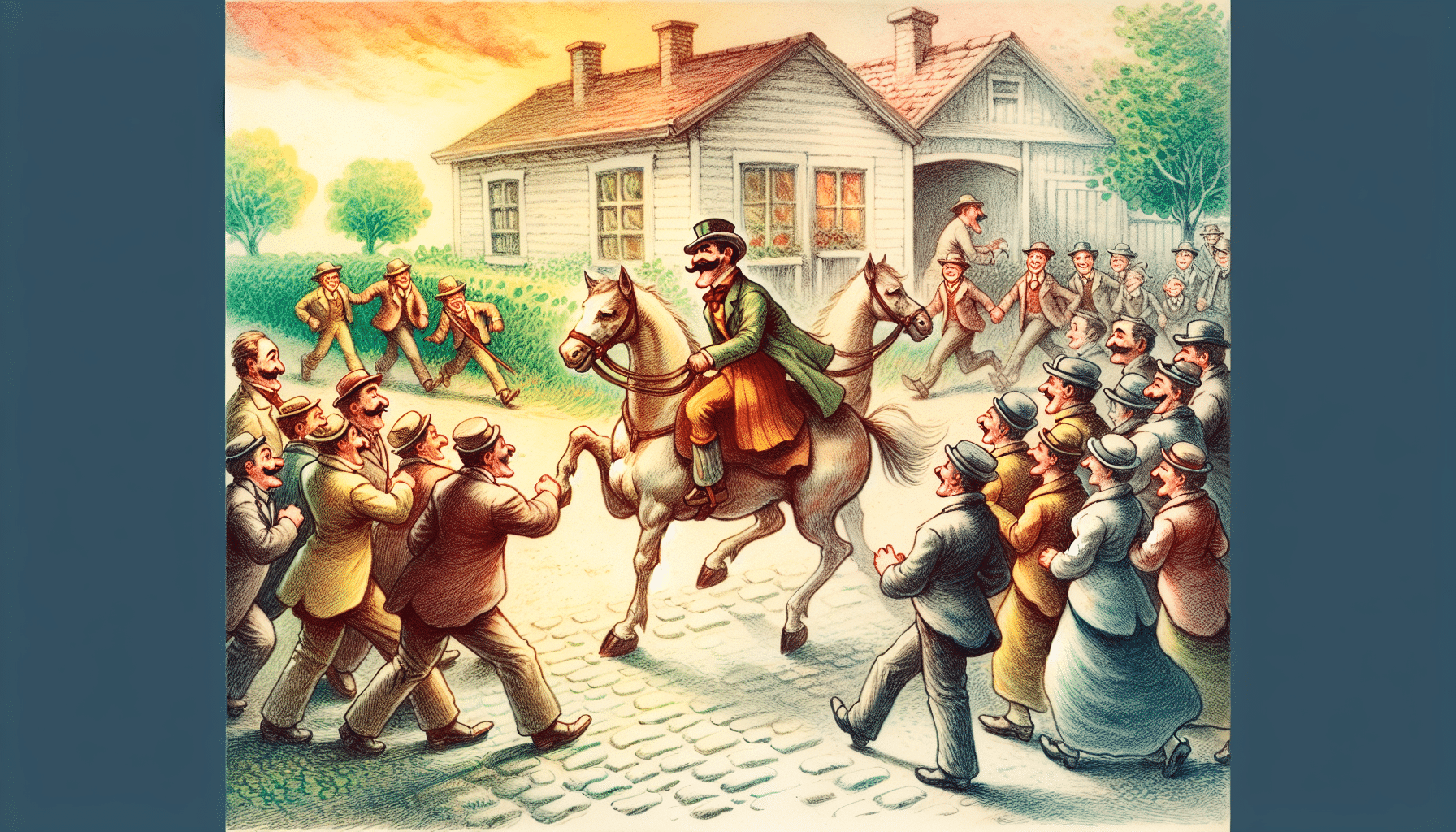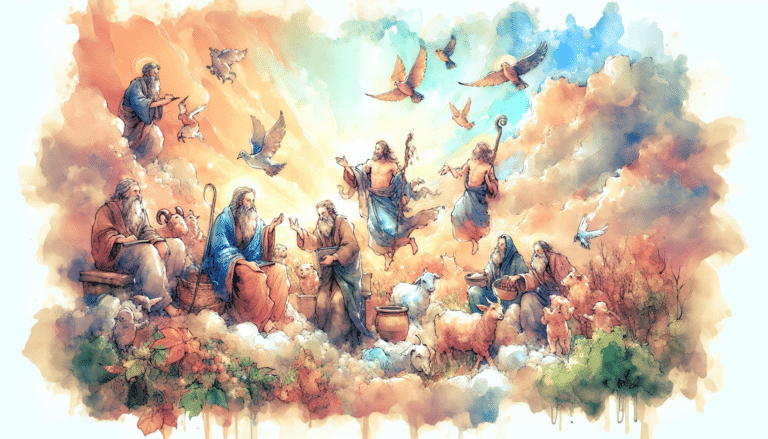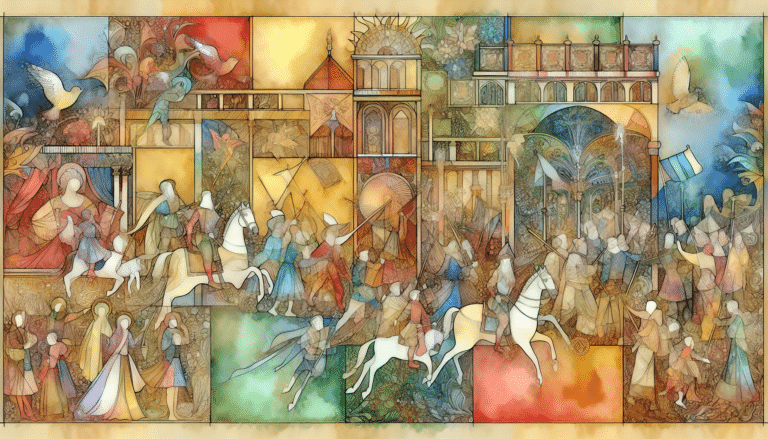Ethical Explorations: Stories of Right and Wrong
Ethical Explorations: Stories of Right and Wrong
Lurking in the vast expanse of a sprawling forest was a quaint, isolated hamlet, dappled with cottages and the subtle essence of earthy verdancy. The air was laden with an aroma of pine and mulberries, and birds revolved around in swoops of flutters against the sapphire sky, perhaps lighting from tree top to tree top, allowing their melodies to embellish the aura of the village.
In this pacific hamlet lived a man named Eben, a humble carpenter known for his nimble hands and quick wit. With tousled brown hair, twinkling blue eyes full of mirth, and a smile that radiated a comforting warmth, he brought an air of serenity wherever he went. His work, although simple, was always carried out with unprecedented care and unflinching morality.
On the outskirts of the village lived Holm, an old and wealthy trader with a shrewd mind. Holm was a contrasting figure to Eben, with a hawk-like gaze, graying hair, and a demeanor that was as cold and calculating as an icy winter wind. His business decisions were driven by profit rather than ethical considerations, a fact that was no secret to the villagers.
One peaceful morning, a rare, exotic bird was seen flitting around Eben’s workshop. The bird was spectacularly vibrant, with emerald feathers gleaming in the dappled sunlight and eyes that sparkled like precious garnets. It had a melodious song that made even the morning larks pause.
Despite being bewitched by its beauty, Eben understood the importance of allowing this bird to fly free. His moral compass led him to care for the creature while it rested, and then he watched as it spread its majestic wings and shot like an arrow into the boundless infinity of the cerulean sky.
Word of the bird’s beauty reached Holm. His avaricious nature flared up, enticing him with the prospect of displaying such an exotic creature at his residence. This symbol of status and opulence held tremendous allure for Holm. He offered Eben an indecent amount of gold in return for the alluring bird.
Eben shook his head, disappointing Holm. He believed that the price of freedom was beyond any earthly wealth. The bird was not a commodity to be traded, but a sentient being deserving of liberty.
A series of events unfolded, where Holm attempted to trap the bird, and Eben thwarted his attempts deftly each time. The happenings were engrossing, drawing the attention of all who lived in the hamlet.
Finally, after several fruitless attempts, a frustrated Holm cornered Eben. “Why do you prevent me from capturing the bird, Eben?» he prickled. «Think of the gold. It can change your life!”
To this Eben softly responded, “Gold can buy luxuries, Holm, but not a clear conscience. The bird’s freedom is its right. To cage it for my selfish gains would be ethically wrong.”
The villagers witnessed this ethical stand-off, their hearts heavy with anticipation. But then, a gust of the forest wind brought them a melody, a familiar, heartening song. In the golden blush of the setting sun, they saw the gleaming emerald bird serenading freedom, spreading its wings wide and soaring.
Holm returned to his wealthy home, but his opulence felt hollow. In contrast, Eben’s humble workshop brimmed over with respect, admiration, and the melodious song of the free emerald bird.
Moral of the fable «Ethical Explorations: Stories of Right and Wrong»
This tale holds a mirror to society’s most primal dilemmas of greed versus compassion, right versus wrong, and freedom versus ownership. Eben, the humble carpenter, is the embodiment of moral fortitude. His decision to value the bird’s freedom over materialistic wealth shows us the essence of genuine riches such as peace, self-respect, and the sanctity of all life forms.
Holm, while being wealthy, lacks the ethical principles that truly enrich life. His blindness towards the value of freedom and his greed for ownership underlines the emptiness that accompanies material wealth when unaccompanied by moral values.
We learn from the emerald bird that the melody of freedom is the purest and most valuable. It teaches us that certain things are not meant to be owned, especially when that ownership impedes the essence of life itself.
Eben’s stand holds a simple yet profound message. Ethical considerations should always precede the accumulation of material wealth, as it is from a clear conscience that true prosperity arises.











